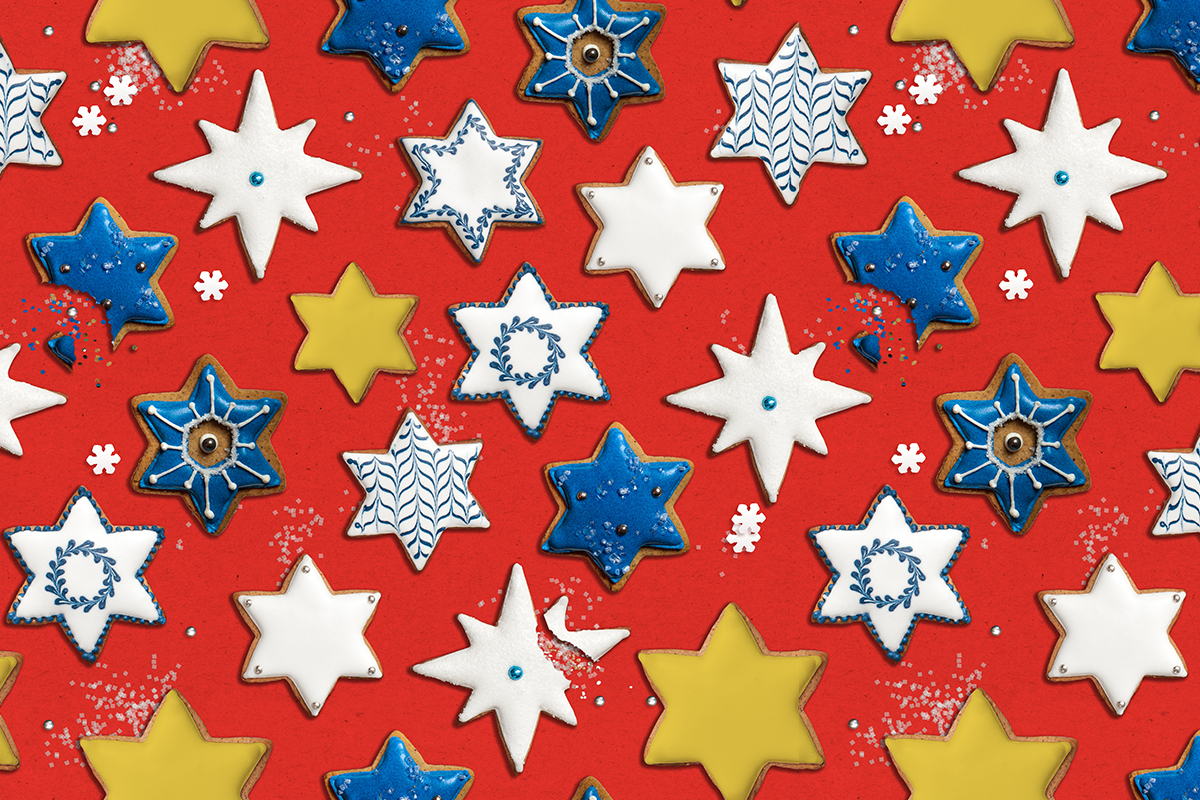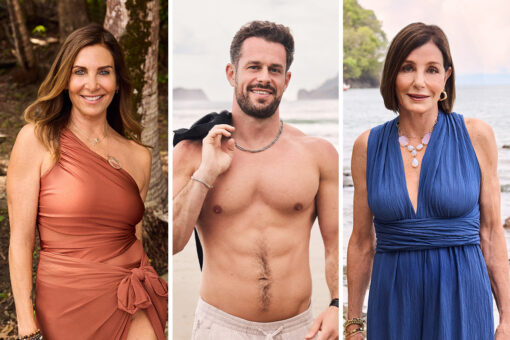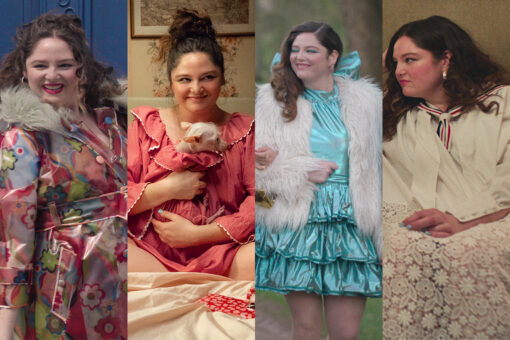In some Jewish circles, when I mention that I am in an interfaith relationship, the first question I’m asked is how we handle the winter holidays. While I’ve been in this relationship long enough to expect these questions, I am still slightly taken aback every time. It’s as if there’s an unwritten rule about every interfaith relationship where one person celebrates Hanukkah and the other celebrates Christmas: that the holiday season will be burdensome and complicated.
The reality, however, is completely different. From our first Hanukkah/Christmas mashup, we have celebrated each holiday together and have introduced each other to the customs and traditions we grew up with. My Hanukkah traditions aren’t elaborate, but my memories are: decorating my house with Hanukkah-themed lights and streamers, my mom reading me beautiful Hanukkah picture books when I was younger, my little sister’s first time lighting the candles by herself, eating way too much gelt with my cousins, and more.
I first described these memories to my boyfriend as we sat in my dingy college dorm in the middle of finals season. I managed to smuggle a menorah and some candles to my room, where we lit the candles every night and I taught him the prayers and their meanings. Somehow, he found a recipe for latkes and made them for us, and I gorged myself. We went to a Hanukkah party that our university’s Jewish Student Association hosted where we ate even more latkes.
That year, my boyfriend and I also celebrated Christmas by decorating his room, going to our university’s tree lighting, and exchanging gifts. We made some dishes that were reminiscent of his family’s traditional southern Christmas Eve lunch (my favorite being key lime pie).
It’s been three years since our first Hanukkah/Christmas mashup, and each year since then we have found more creative ways to celebrate each holiday and make them our own. With the COVID-19 pandemic, this year is no different: we’ve planned Zoom menorah lightings for Hanukkah and Christmas is still in the works.
None of that was ever burdensome or complicated. What has been, though, is the continual feeling that I need to justify my relationship and, even more so, my commitment to Judaism and my Jewish heritage. I am not any less Jewish just because I invite a non-Jew to participate in and appreciate my traditions, or because I engage with and respect his traditions.
While many Jews view Hanukkah as a minor Jewish holiday, it has always been really important and special to me. Since my family is from the former Soviet Union, they did not receive any formal religious education. The ways they observed Jewish holidays were passed down through word-of-mouth by relatives who grew up before the Holocaust and the Soviet Union’s oppressive policies and actions toward Jews. Hanukkah was an accessible holiday, with a palatable and relatable story about prevailing against oppressors and preserving Jewish identity despite everything.
When my great-grandmother died in 2018, I sat in her apartment in Brooklyn — where she had lived since coming to the U.S. in the mid-1980s — and looked through photo albums that captured various celebrations. Many of them were Hanukkah dinners throughout the years, where she held me or stood with me as she lit the menorah. As I learned more about the history of Soviet Jews hiding their Judaism, I returned to these images, which became symbols of survival for me. The first Hebrew I learned was the phrase “Am Yisrael chai” (the people of Israel live), and I intend to continue that legacy.
I love being Jewish in the U.S. because of the prevalence of interreligious dialogue and cultural exchange. At Georgetown and elsewhere, I have been invited to attend and participate in the services, prayers, and meditations of various different faiths. I love learning about traditions that are not my own, and I enjoy informing others of my path within Judaism.
Similarly, I am in awe of the pluralism of the American Jewish community. Since I was not raised within a denomination, I have had the privilege of attending services in the Modern Orthodox, Conservative, and Reform traditions. Every Jew I have met has their own way of practicing and grappling with their Judaism — and I think that’s beautiful.
It is completely normal and expected for Jews to develop their own practices and ways to observe Jewish holidays that feel right to them. There is nothing wrong with interfaith couples and families creating their own meaningful traditions. Especially during the winter holiday season, we need to keep an open mind toward Jews in interfaith relationships and Jews from interfaith backgrounds so that they are not even more alienated. In such a pluralistic community, validating and accepting one another’s practices should not be difficult.
One criticism I have received that makes my blood boil is that I am allowing myself to be “assimilated” and that I will lose my Jewishness over time if I stay in a relationship where I am also participating in Christmas celebrations. And I will shout my response to this from the rooftops: I do not need a Jewish partner to affirm my steadfast commitment to being Jewish.
In fact, having a non-Jewish partner has made my sense of identity and religiosity stronger because every time I share my traditions and talk about my family history, I am reminded of how salient Judaism is to who I am. It’s been wonderful to celebrate these moments with someone who truly cares for me, and I am glad to be trusted to engage with his family’s customs.
At the end of my day, Hanukkah will always be my holiday, and Christmas will always be my boyfriend’s. There is a clear recognition that we inhabit and retain distinct cultural and religious spaces, even though we actively share them with each other. And that is okay.
Of course, some interfaith relationships will not work out due to religious differences, but that is no excuse to dismiss the potential of all interfaith relationships. In the many cases where each partner honors the others’ traditions, or where children of intermarriage engage with both Hanukkah and Christmas, there should be more acceptance and less judgment. And more latkes. Always more latkes.



